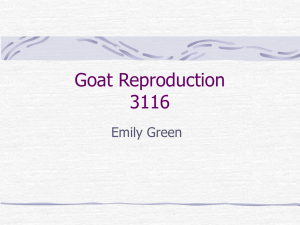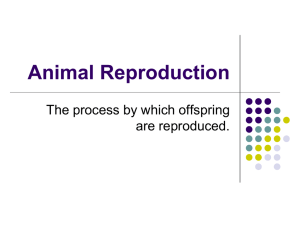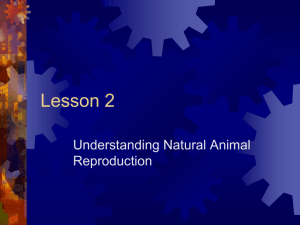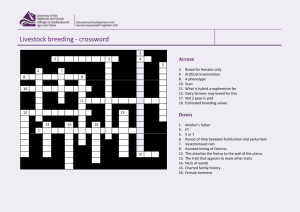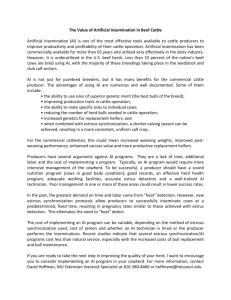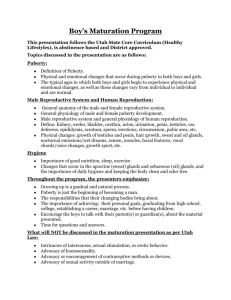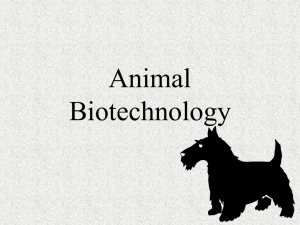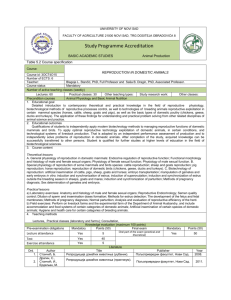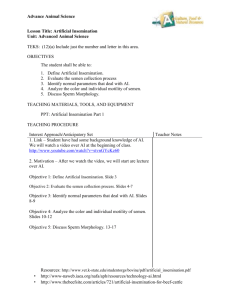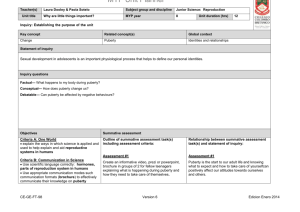Reproduction Study Guide - Montgomery County Schools
advertisement
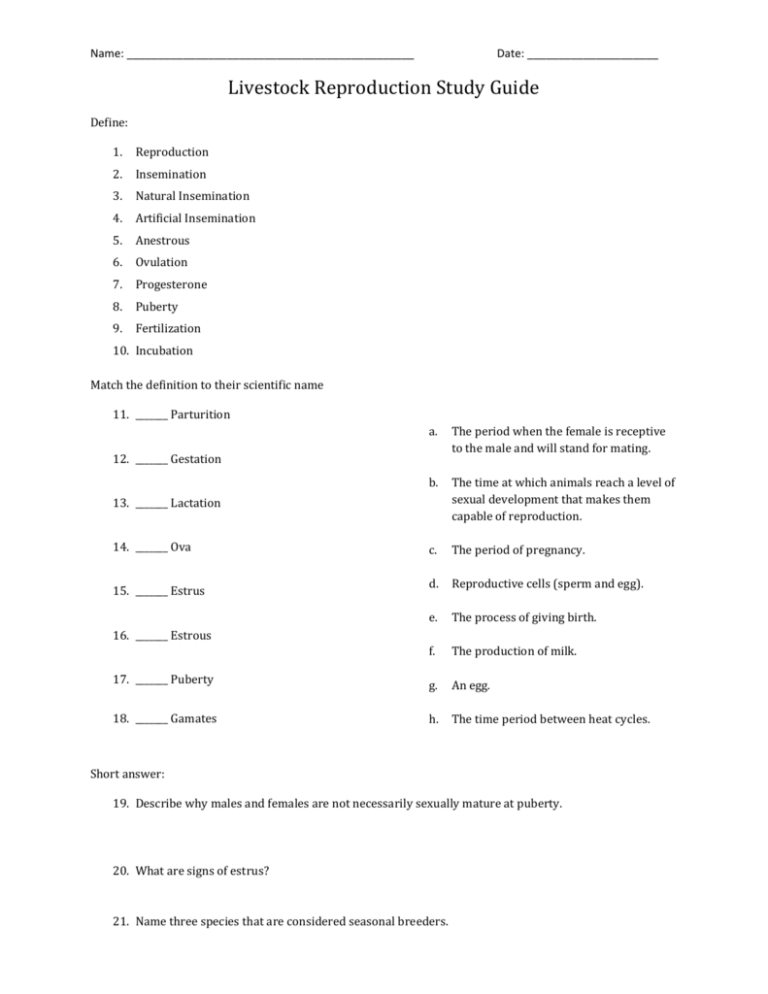
Name: ______________________________________________ Date: _____________________ Livestock Reproduction Study Guide Define: 1. Reproduction 2. Insemination 3. Natural Insemination 4. Artificial Insemination 5. Anestrous 6. Ovulation 7. Progesterone 8. Puberty 9. Fertilization 10. Incubation Match the definition to their scientific name 11. _______ Parturition a. The period when the female is receptive to the male and will stand for mating. b. The time at which animals reach a level of sexual development that makes them capable of reproduction. c. The period of pregnancy. d. Reproductive cells (sperm and egg). e. The process of giving birth. f. The production of milk. 17. _______ Puberty g. An egg. 18. _______ Gamates h. The time period between heat cycles. 12. _______ Gestation 13. _______ Lactation 14. _______ Ova 15. _______ Estrus 16. _______ Estrous Short answer: 19. Describe why males and females are not necessarily sexually mature at puberty. 20. What are signs of estrus? 21. Name three species that are considered seasonal breeders. 22. Name three behavior changes that may indicate if a female is nearing parturition. 23. Why might we prefer AI over conventional breeding? EXPLAIN IN DETAIL! Give at least two GOOD reasons. Complete the sentences 24. Testicles produce ____________________ and _____________________________. 25. Testosterone causes the _________________________________and_______________________________________ of an animal to be masculine. 26. The Epididymis is a _________________________________________ for sperm cells. 27. The ovary produces _______________________, _________________________, ___________________ and _______________________________. 28. Oviducts are also known as __________________________________ _________________. Short answer 29. Why is it important for the scrotum to regulate the temperature of the testicles? 30. What does the uterus consist of? 31. What is a zygote? 32. Where does fertilization occur? 33. What makes up semen? EXPLAIN. Other 34. Review the anatomy. Be able to label parts of the male and female reproductive tracts. 35. Be able to explain the three stages of parturition. 36. Know the four stages of the estrous cycle and explain what takes place at each.
